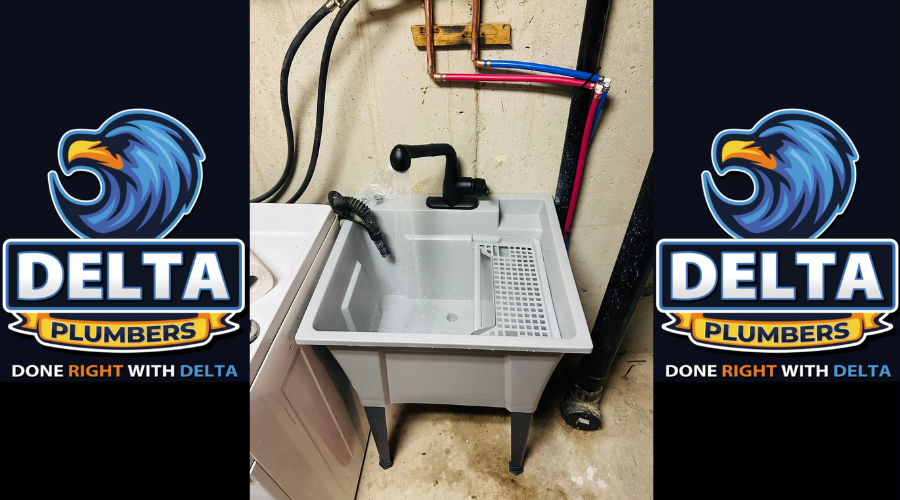Plumbing systems form the backbone of every home and commercial property, ensuring the efficient delivery of clean water and the safe disposal of waste. Professional plumbing inspections are essential to maintain the system’s functionality and prevent costly repairs. This blog explores the many benefits of professional plumbing inspections, delves into their purpose, and addresses common questions, supported by top-searched keywords.

Picture Source – Delta Plumbers
What are the advantages of plumbing inspection?
Professional plumbing inspections offer a wide range of benefits that safeguard both your property and finances:
1. Early Problem Detection:
Professional inspections help identify issues such as hidden leaks, corrosion, or blockages before they escalate into significant problems. Early detection minimizes the risk of extensive damage and costly repairs.
2. Cost Savings:
Preventive maintenance is significantly cheaper than emergency repairs. By addressing minor issues uncovered during an inspection, homeowners can avoid major expenses down the line.
3. Increased Longevity of Plumbing Systems:
Routine inspections ensure that pipes, fixtures, and appliances remain in optimal condition, thereby extending their lifespan. A well-maintained plumbing system functions efficiently for years.
4. Water Conservation:
Leaky faucets, running toilets, and other inefficiencies waste water and drive-up utility bills. Inspections identify these problems, enabling prompt fixes and promoting eco-friendly water usage.
5. Enhanced Safety:
Plumbing inspections help maintain safe water quality by identifying potential contamination sources, such as backflow, corroded pipes, or outdated plumbing materials. This protects your family’s health.
6. Improved Home Value:
A well-documented history of regular plumbing maintenance increases a property’s market value. Potential buyers are more likely to invest in a home that has been responsibly maintained.
Also Read: Plumbing Codes and Regulations: Understanding Everything

Picture Source – Delta Plumbers
What is the purpose of a pipe inspection?
Pipe inspections are a critical aspect of maintaining a plumbing system. Their primary purposes include:
1. Assessing Pipe Condition:
Inspections evaluate the health of pipes, checking for wear, rust, or damage. This information helps homeowners plan necessary repairs or replacements to maintain functionality.
2. Detecting Hidden Leaks:
Advanced tools, such as video cameras, are used to locate leaks in areas that are not easily accessible. Detecting these issues early prevents water damage and mold growth.
3. Ensuring System Efficiency:
Professional pipe inspections verify that water pressure and flow rates meet recommended standards, ensuring that the system operates efficiently.
4. Compliance with Codes:
Regular inspections ensure that your plumbing system adheres to local building codes and regulations, helping you avoid fines or legal issues.
5. Preventing Emergencies:
Pipe inspections identify vulnerabilities that could lead to sudden failures, such as burst pipes or severe clogs, which often result in costly emergency repairs.
Also Read: How to Install a Garbage Disposal

Picture Source – Delta Plumbers
What are the benefits of plumbing?
Plumbing systems are fundamental to modern living, providing essential services that improve the quality of life. Some of the most notable benefits include:
1. Access to Clean Water:
A properly functioning plumbing system ensures the delivery of safe, potable water for drinking, cooking, and cleaning, which is vital for health and hygiene.
2. Efficient Waste Removal:
Plumbing facilitates the safe disposal of wastewater, maintaining cleanliness and preventing exposure to harmful bacteria and contaminants.
3. Convenience and Comfort:
Modern plumbing offers conveniences such as hot water, efficient appliances, and aesthetically pleasing fixtures, which enhance everyday living.
4. Energy Savings:
By incorporating energy-efficient technologies, such as low-flow fixtures and tankless water heaters, plumbing systems help reduce energy consumption and lower utility bills.
5. Environmental Protection:
Properly installed and maintained plumbing systems prevent pollution and conserve natural resources by minimizing leaks and ensuring efficient water use.
Also Read: Plumbing Tips for Remodeling Your Kitchen

Picture Source – Delta Plumbers
Why is quality so important in plumbing?
The quality of a plumbing system determines its reliability, efficiency, and longevity. Here’s why quality matters:
1. Durability:
High-quality plumbing materials and professional installations ensure that the system withstands wear and tear, reducing the frequency of repairs.
2. Safety:
Quality plumbing prevents issues such as leaks, contamination, or pressure fluctuations, safeguarding both property and health.
3. Cost Efficiency:
Investing in high-quality plumbing might have a higher upfront cost but saves money in the long run by lowering maintenance and repair expenses.
4. Aesthetics:
Premium fixtures and fittings enhance the appearance of kitchens and bathrooms, increasing the overall value of a property.
5. Peace of Mind:
A reliable plumbing system eliminates worries about unexpected breakdowns or emergencies, allowing homeowners to focus on other priorities.
Also Read: Shut-Off Valve Replacement: A Complete Guide

Picture Source – Delta Plumbers
What is 100% inspection: advantages and disadvantages?
A 100% inspection involves a thorough examination of every component in a plumbing system. While this approach is comprehensive, it has both advantages and disadvantages:
Advantages:
- Comprehensive Evaluation: Every aspect of the plumbing system is checked, leaving no stone unturned. This ensures that no potential issue goes unnoticed.
- Maximum Accuracy: Thorough inspections provide precise information about the system’s condition, enabling targeted repairs and maintenance.
- Enhanced Safety: Identifying all potential problems minimizes risks of failures or hazards, such as water damage or contamination.
Disadvantages:
- Higher Costs: Conducting a 100% inspection is time-intensive and labor-intensive, leading to higher costs.
- Time-Consuming: Inspecting every component can take a considerable amount of time, potentially causing inconvenience.
- Overkill for Minor Issues: In some cases, such detailed inspections may not be necessary, making them less cost-effective for small-scale systems.
Also Read: Bathroom Plumbing Fixtures: The Latest Trends in Canada

Picture Source – Delta Plumbers
What are 2 advantages of inspections over testing?
Inspections and testing are both essential for maintaining plumbing systems, but inspections have distinct advantages:
1. Broader Scope:
Inspections provide a holistic evaluation of the plumbing system, addressing multiple components and potential issues at once. Testing, on the other hand, often focuses on specific parameters, such as water pressure or temperature.
2. Preventive Focus:
Inspections aim to identify potential problems before they occur, enabling proactive maintenance. Testing typically reacts to existing issues, making it less effective for prevention.
Also Read: How to Replace a Toilet: Step-by-Step Guide

Picture Source – Delta Plumbers
What are the benefits of pipeline inspection?
Pipeline inspections are crucial for ensuring the safe and efficient operation of plumbing systems. The benefits include:
1. Leak Detection:
Regular inspections identify leaks early, preventing water wastage and structural damage to the property.
2. Corrosion Control:
Inspections detect signs of corrosion, enabling timely repairs and ensuring the longevity of pipelines.
3. Flow Optimization:
Ensuring that pipelines are free from blockages improves water flow and reduces strain on the system, enhancing overall efficiency.
4. Environmental Protection:
By preventing leaks and spills, inspections help protect the environment from potential contamination.
5. Regulatory Compliance:
Routine inspections ensure that pipelines meet industry standards and adhere to local regulations, avoiding fines and legal complications.
6. Cost-Effective Maintenance:
Early detection of issues reduces repair costs and minimizes system downtime, saving money over time.
7. Improved Safety:
Inspections mitigate risks associated with pipeline failures, protecting property and ensuring the safety of occupants.
Conclusion –
Professional plumbing inspections are an investment in the safety, efficiency, and longevity of your plumbing system. By addressing potential issues early, ensuring quality workmanship, and leveraging advanced inspection techniques, Delta Plumbers provides homeowners with peace of mind and optimal system performance. Contact Delta Plumbers today to schedule your plumbing inspection and experience these benefits firsthand!









